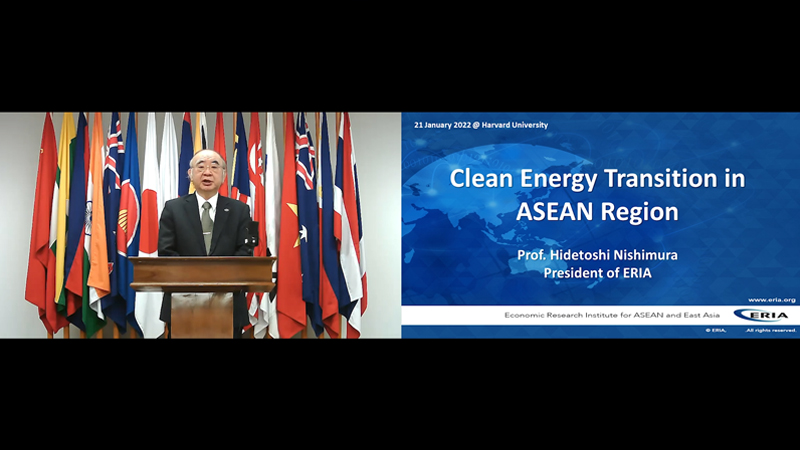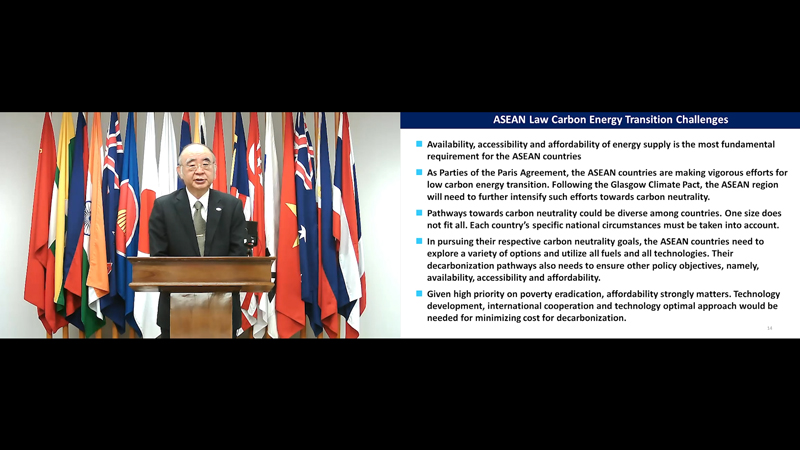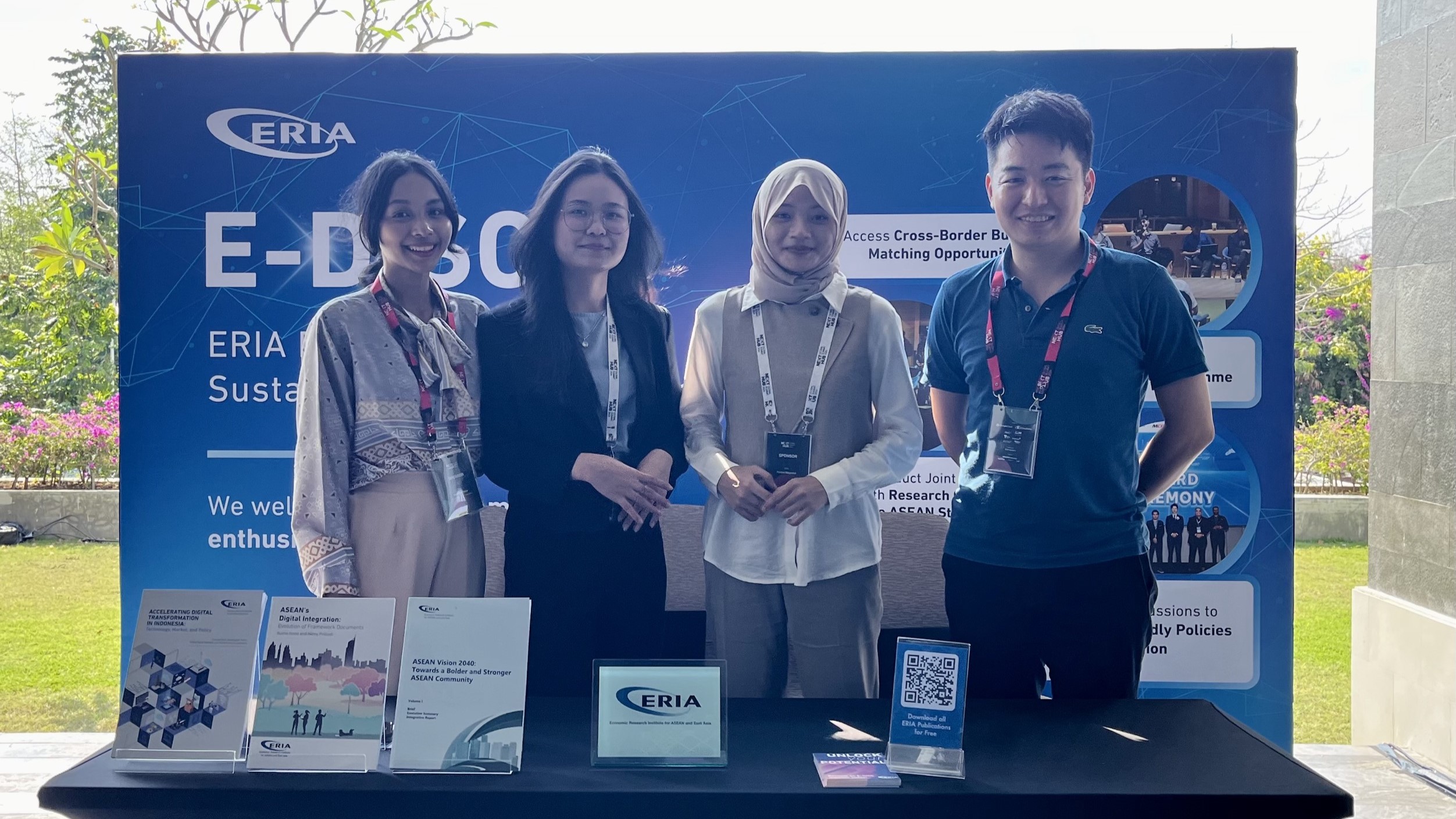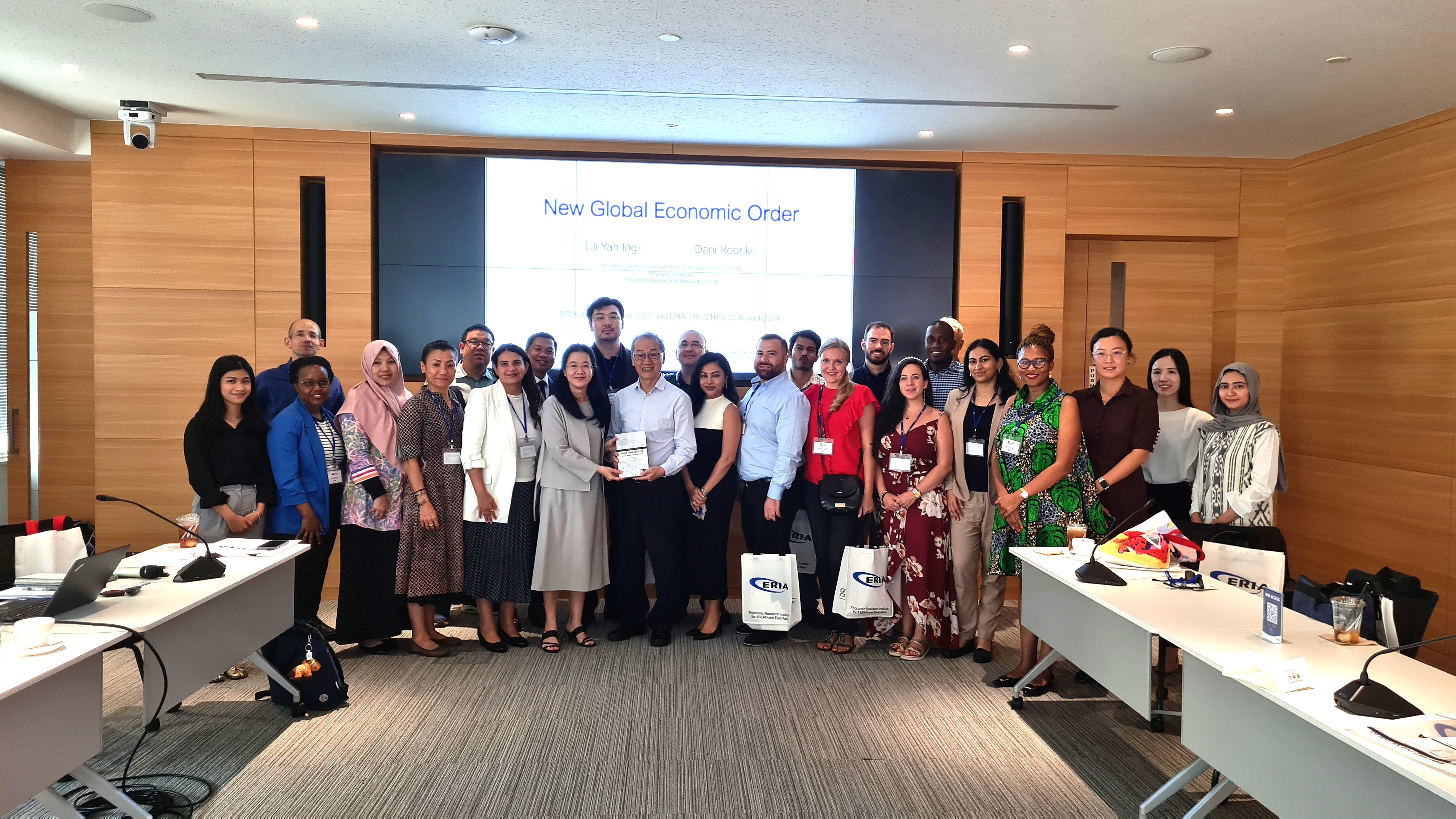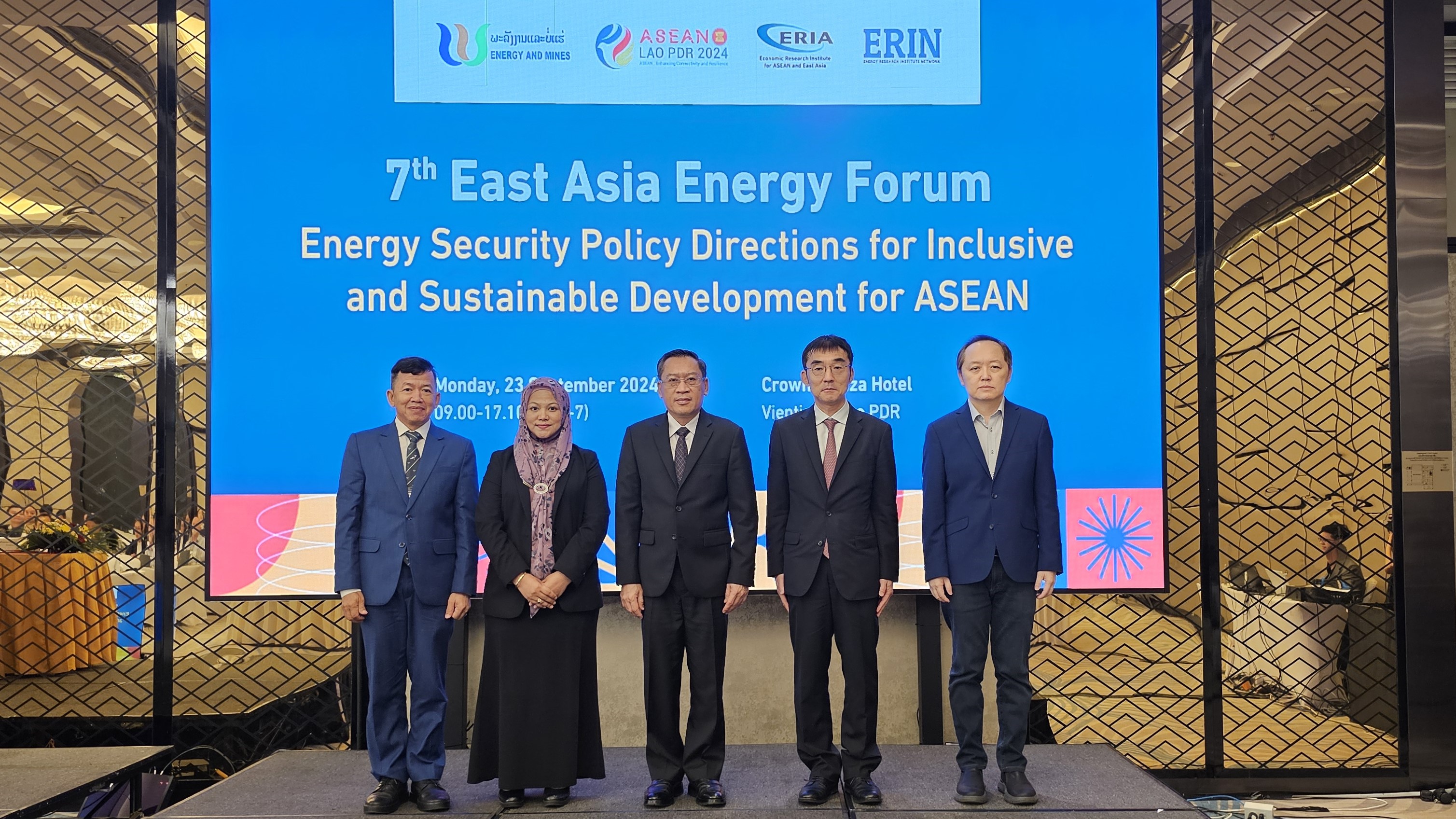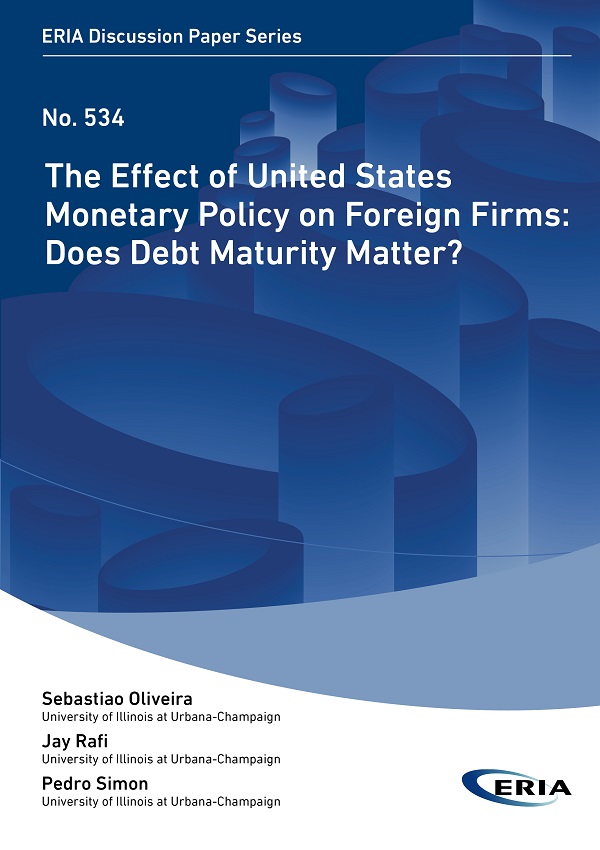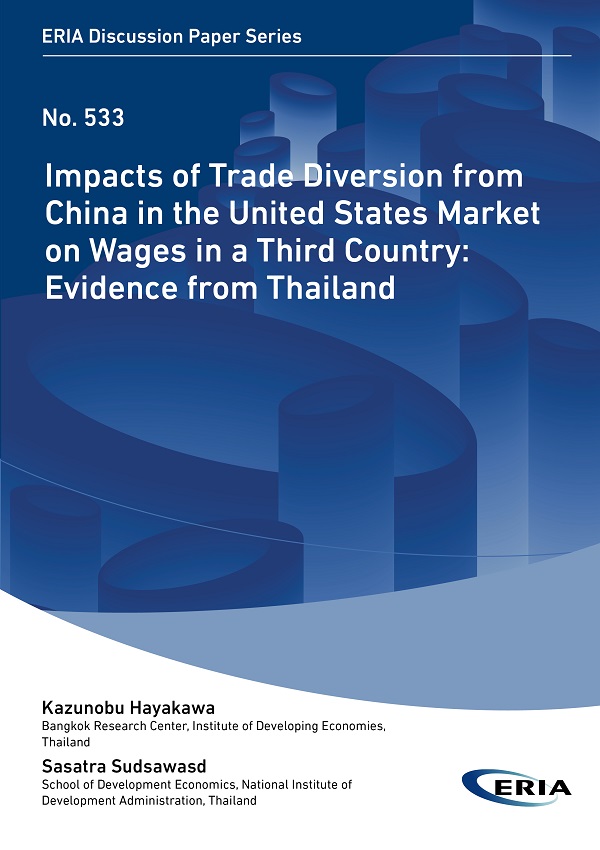President Nishimura Speaks at Harvard Conference on New Ways to Approach a New World
Date:
21 January 2022Category:
NewsTopics:
Innovation and TechnologyShare Article:
Print Article:
Jakarta, 21 January 2022: The Economic Research Institute for ASEAN and East Asia (ERIA) participated in the annual event held by the Harvard College in Asia Program (HCAP): ‘Interdisciplinary Innovation - New Ways to Approach the World.’
Professor Hidetoshi Nishimura, President of ERIA presented on the ‘Clean Energy Transition in the ASEAN Region’, providing an overview of ERIA's most recent energy outlook on the East Asia region and highlighting the importance of fossil fuels to satisfy the economic development in this region while also applying ambitious target of renewable energy promotion.
President Nishimura also described the ASEAN Low Carbon Energy Transition Scenario, simulated by ERIA with the major policy lessons: 1) Energy-saving, electrification in end-use sectors, and low-carbon power supply utilising all technologies, would be core strategies for ASEAN decarbonisation, 2)Various kinds of ‘low-carbon’ technologies are also needed during the transition period, 3) Cost reduction and international cooperation are essential for affordability, and 4) ASEAN countries could utilise a cost optimisation scenario for considering unique transition pathways.
Finally, President Nishimura provided key messages on the ASEAN countries availability, accessibility, and affordability of energy supply, and how the carbon neutrality efforts of ASEAN member states might diversify their pathways. Technology development and international cooperation should be promoted to reduce the cost of de-carbonisation.
In the panel discussion, Professor Jun Arima, Senior Policy Fellow on Energy and Environment, drew attention to various challenges in tackling climate change such as the required pace of decreasing greenhouse gas emissions from now until 2030, different prioritisation of the 17 SDGs across countries, low willingness to pay for additional mitigation costs and so forth. He also emphasised the role of education, giving a balanced perspective on the intertwined nature of energy security, climate change, and economic efficiency as well as different national circumstances.
The Harvard College in Asia Program (HCAP) is Harvard’s premier organisation for facilitating cross-cultural dialogue with partner universities spanning eight Asian countries. Speakers at the annual conference have included: Anant Agarwal (Founder and CEO, edX), Wendy Kopp (Founder and CEO, Teach for All), and Tim Danks (Vice President, Huawei). This year’s HCAP Harvard Conference took place on the week of January 16, 2022, with the goal of working towards a collaborative understanding of how disparate disciplines can be utilised together to approach a rapidly changing world.

